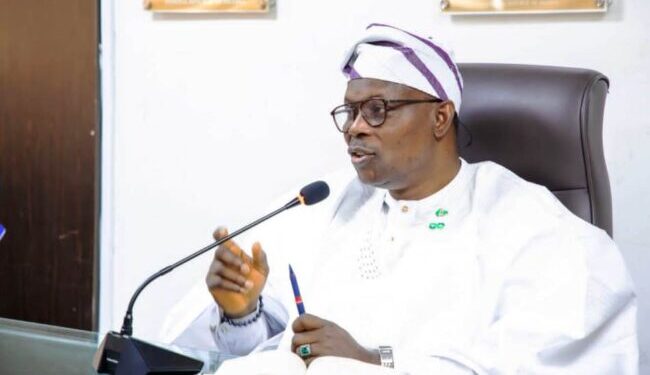Federal Government has called for collective action against Neglected Tropical Diseases (NTDs) as it renews global and national awareness to address the magnitude of those diseases problem in Nigeria.
The Minister of State for Health and Social Welfare, Dr. Iziaq Salako, made the call on Monday in Abuja during the commemoration of the 2025 World NTD Day.
While speaking further, the Minister of State stressed the significance of the day, stating that it “renews global and national awareness to address the magnitude of NTDs problem”.
He disclosed the alarming statistics, with over one billion people affected worldwide, and Nigeria accounting for about 25% of cases in Africa.
The Minister also noted that Nigeria has made significant progress in combating NTDs, including the eradication of Guinea Worm in 2013, and the elimination of Onchocerciasis in two states.
He, however, acknowledged that more needs to be done, with NTDs still not a priority on Nigeria’s healthcare agenda.
Salako, therefore, called for increased collaboration and coordination among stakeholders, including government, private sector, and development partners.
He also emphasized the importance of integrating NTDs elimination activities with other disease entities to leverage resources.
“The London Declaration of 2013 and the Kigali Declaration of 2019 committed Nigeria to work with other countries of the world to eliminate NTDs.”
“The World Health Organisation’s NTDs road map for 2021-2030 provides a blueprint for global elimination.”
Salako noted that the theme of this year’s campaign, “Unite. Act and Eliminate NTDs,” resonated throughout the event as he urged all stakeholders to work together to achieve the goal of eliminating NTDs in Nigeria.
The Minister also highlighted the progress made by Nigeria in combating NTDs, including the development and review of the NTDs master plan for 2023-2027.
\
ALSO READ: Equities investors earn N471.4bn as market opens week with 0.79% increase
“I am proud to announce that Nigeria is one of the few endemic countries that have developed and reviewed its NTDs master-plan 2023 – 2027 and is being used as an advocacy tool by all stakeholders towards the attainment of the 2030 target.”
Salako emphasized the need for increased funding and resources to combat NTDs as he said, “Nigeria’s Health Sector Renewal Investment Initiative offers a robust template to continue to collaborate and engage all stakeholders in our collective resolve to push NTDs out of Nigeria.”
Also speaking, the Country Director of CBM Global, Abdulazeez Musa, said, CBM Global is currently working in a consortium comprising the National Programmes for NTD and Mental Health at the Federal Ministry of Health and Social Welfare, University of Jos, Health and Development Support Programme, RedAid Nigeria, The Leprosy Mission Nigeria, and organized groups of persons affected by NTD to develop a model of integrating mental health care into the national NTD programme and civil society work in Nigeria.
The project, he said aimed to improve the mental health and wellbeing of people affected by Neglected Tropical Diseases in Nigeria.
“Along with our partner. CBM Global is also implementing the CiskuLA project The project represents CBM Global’s comprehensive and inclusive apparent NTD care that puts the person (affected by NTD) and communities at the centre of our approach while addressing the social and psychological effects of being affected by the NTD.
“Aligned to the WHO NTD Roadmap (2021-2030) and the Nigeria National NTD Masterplan (2023-2027), CISKULA adopts the Disease Management and Disability Inclusion (DMDI) approach aimed at building the resilience of persons affected by NTDs and their communities to the burden of NTDs towards reaching national and global targets for the elimination of NTD.”
“This year’s theme, Act Now. Act Together, Invest in NTDs, le a clarion call to all of us. To act now means recognizing that time is of the essence.”
“Delayed action leads to lost lives, diminished livelihoods, and prolonged suffering. To act together reminds us that no single entity can achieve this alone.”
Meanwhile, President of IDEA-Nigeria, Peter Terver, raised concerns as over a year, critical Multi-Drug Therapy (MDT) medications have been unavailable, leaving over 3,000 diagnosed individuals, including 800 children, without treatment. These delays are not just administrative failures—they are human rights violations.
He also disclosed that bureaucratic bottlenecks, such as additional NAFDAC requirements and permit expirations, continue to block the supply of life-saving medicines. Despite our repeated appeals, no action has been taken.
“This neglect is reversing Nigeria’s progress in leprosy elimination, increasing disease transmission, and pushing affected individuals further into stigma and suffering,” he said.
READ MORE FROM: NIGERIAN TRIBUNE









